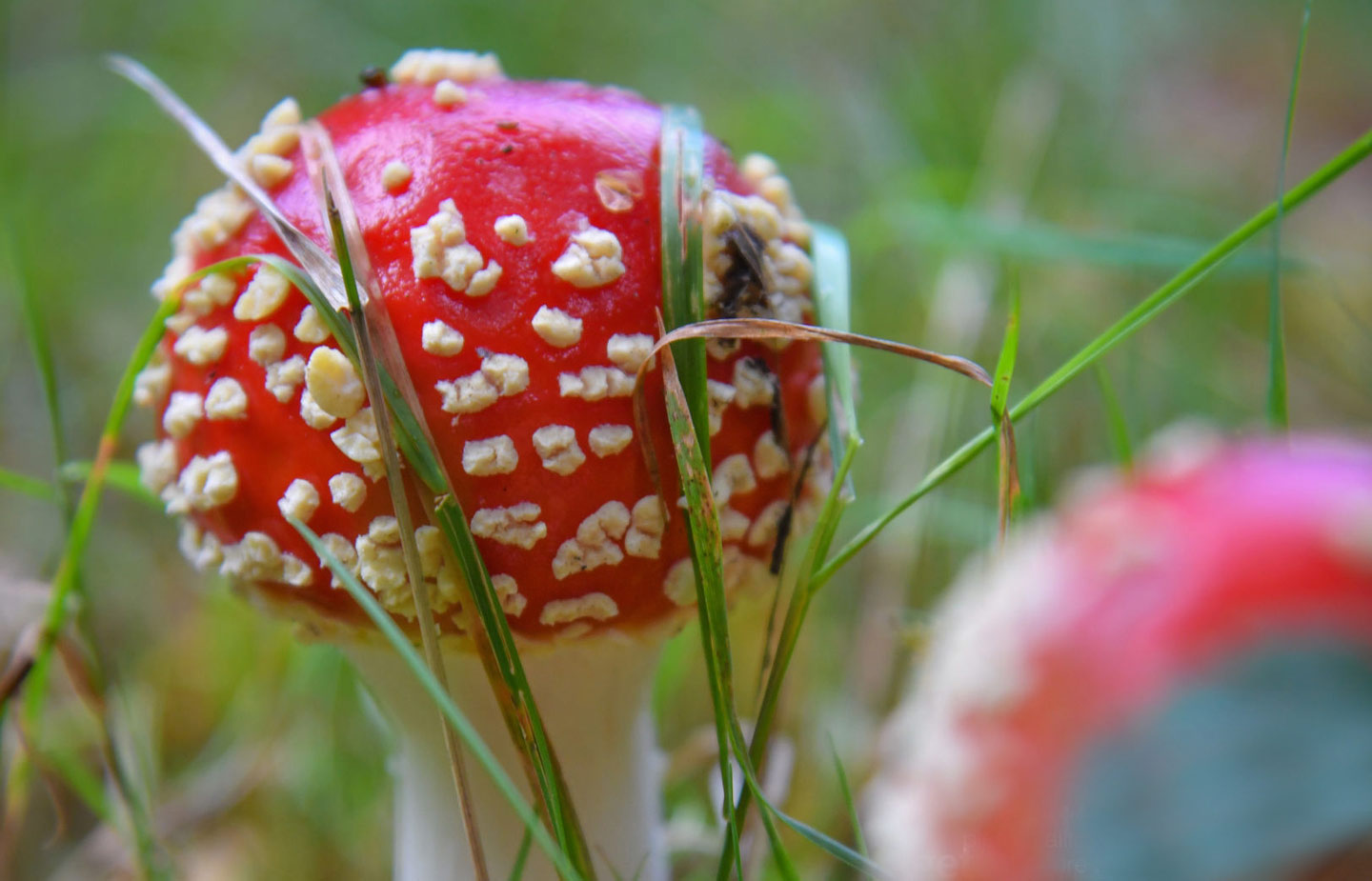The Acid Test
Can psychedelics cure the crisis of mental illness, asks Dr. Franklin King ’05, a psychiatrist and clinical instructor at Harvard Medical School.
The notion of psychedelic drugs becoming mainstream might sound like some violet-eyed hallucination of 1960s icon Timothy Leary.
But what the late Harvard psychologist and psychedelics evangelist must have vividly imagined for mushrooms, ecstasy and more may finally be taking shape.
In spring, The New York Times, among other publications, reported about how “the psychedelic revolution is coming [and] psychiatry may never be the same,” with psilocybin and MDMA (ecstasy) “poised to be the hottest new therapeutics since Prozac.”
Those reports followed the opening in February of the Center for the Neuroscience of Psychedelics, which works to understand how psychedelics can improve the treatment of mental illness, at Massachusetts General Hospital.
The authorized prescription of psychedelic drugs for mental illness—supplemented with therapy—may only be a few years away, according to Dr. Franklin King ’05, a psychiatrist and the director of training and education at the Mass General center. King, also a clinical instructor at Harvard Medical School, said about the growing acceptance of psychedelics in medicine: “There’s a crisis of mental illness in this country, and crisis necessitates new ways of thinking.”
Fungi and plants
Leary was among the early researchers into the use of psychedelics, at a time when their risks were not well known. Initially, his work was well-regarded, but he was criticized for taking psychedelics himself during his research and was fired by Harvard for giving a psychedelic to an undergraduate student off campus.
That helped lead to many years in which psychedelics were disregarded and little studied.
Psychedelics, also known as hallucinogens, are found in plants and fungi or are synthetically produced, and they are among the oldest known group of drugs used for their ability to alter human perception and mood, according to the U.S. Drug Enforcement Administration (DEA).
Lysergic acid diethylamide (LSD) may be the best known, but the Center for the Neuroscience of Psychedelics sees three compounds as “promising treatments that may increase the brain’s capacity for change” and eliminate mental suffering. They are psilocybin, sometimes simply known as “shrooms” or “magic mushrooms,” a hallucinogenic chemical obtained from certain types of mushrooms; 3,4-methylenedioxymethamphetamine—MDMA or ecstasy—a pill or a powder known as a party drug; and N,N-dimethyltryptamine (DMT), the active ingredient in a brew called ayahuasca.
The center’s initial research focuses on how psilocybin can be used for patients with treatment-resistant depression, and MDMA for patients with treatment-resistant post-traumatic stress disorder (PTSD). The drugs mainly affect serotonin, a “chemical messenger” in the brain that affects mood and memory, among other things.
A study led by a University of California, San Francisco researcher and published in May concluded that MDMA-assisted therapy is “highly efficacious in individuals with severe PTSD.” A study by King’s colleague, Dr. Sharmin Ghaznavi, is examining how psilocybin affects brain circuits in patients with treatment-resistant depression. She says that for many mental health patients, current treatments “are either inadequate or don’t help at all, and so we owe it to those patients, specifically, to explore the promise that these compounds have.”
King’s role at the center is devising education products for clinicians and working on the MDMA study for PTSD. To him, the term “psychedelic-assisted psychotherapy” is crucial—that is, therapy before and after supervised dosing sessions.
“That’s a really, really different entity than simply taking LSD at a concert recreationally,” he said.
King drawn to psychiatry at Conn
King’s interest in psychedelics stemmed from his interest in psychiatry, which itself was nurtured by courses he took at Connecticut College from Marijan Despalatovic, now a senior lecturer emeritus at Conn. Despalatovic taught Russian and central European literatures, “The Philosophical Novel,” “Intellectual History of Russia,” Chekhov and modern dramaturgy, film theory, and Marxism.
“The force of his intellect and the way he just really encouraged us to be discerning and to think deeply and comprehensively about any problem, and not just to take the low-hanging fruit of a problem ...” King said. “I think that’s really important in medicine and psychiatry.”
In medical school at the University of Massachusetts, King began to learn about psychedelics.
“It was just kind of the awareness that psychedelics elicit this very different and powerful state of consciousness. The experience itself can be perceived as being very powerful and memorable; it leaves a very durable impact,” he said.
What psychedelics do and how they work, King said, “is that they elicit a change in consciousness, a very profound change in consciousness.” Therefore, the patient who has had the experience feels as though “something very profound and transformative has happened, oftentimes with the feeling that it was spiritually important or mystically important, and very personally meaningful to
the individual.”
Learning about the use of these drugs was a watershed moment for King. He saw how intense and how powerful MDMA-assisted therapy was for people, many of whom were veterans, and others who had experienced major trauma.
“Seeing how different the therapy was, the way of interacting—everything was completely different than anything I had experienced in psychiatry. And then seeing the changes in these folks, and how much insight and how much benefit they were able to gain” is paradigm shifting in terms of treatment-resistant PTSD and depression.

